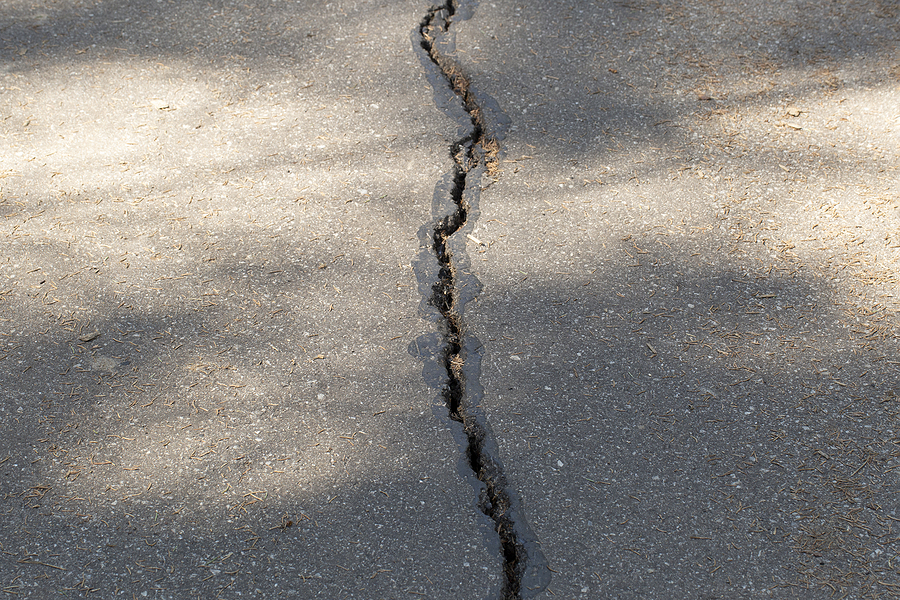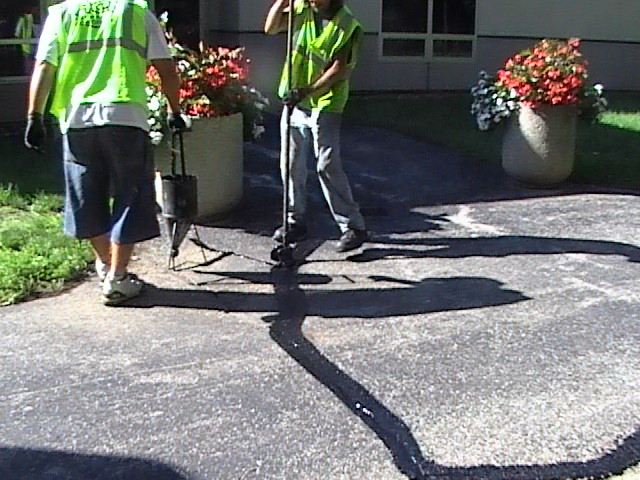Welcome to our comprehensive guide on commercial asphalt paving and repair. Whether you are a business owner considering a new parking lot or someone in need of repairs to an existing pavement, this blog post aims to answer all your queries. We’ll delve into the intricacies of asphalt paving, covering everything from key considerations for new projects to practical tips for maintenance.
With a focus on commercial asphalt paving and parking lot paving, we aspire to provide you with the knowledge and insight necessary to make informed decisions about your pavement needs. So, let’s get started on this journey to paving perfection.

Commercial Asphalt Paving Services
Commercial asphalt paving refers to the process of laying a durable and smooth surface for roads, parking lots, driveways, and other commercial areas. Asphalt is a popular material used for its cost-effectiveness and durability in high-traffic areas. The installation involves first preparing the sub-base, followed by placing and compacting layers of hot-mix asphalt. It is a complex process that requires skilled professionals and specialized equipment.
Benefits of Asphalt Pavements
One of the main advantages of commercial asphalt pavement is its cost-effectiveness. As mentioned earlier, asphalt is a cost-effective material that can save you money in the long run with minimal maintenance needs. Additionally, it provides a smooth and safe surface for vehicles and pedestrians, reducing the risk of accidents. Asphalt is also a sustainable option, as it can be recycled and reused.
Top Considerations
Before beginning any commercial pavement project, there are several key considerations you should keep in mind:
Purpose: Determine the primary purpose of your pavement to ensure that you choose the appropriate materials and design.
Budget: Have a clear understanding of your budget and consult with professionals to find the most cost-effective options.
Location: Consider factors such as climate, soil conditions, and traffic volume when selecting materials and designing the pavement.
Company: Be sure to choose a reputable and experienced commercial paving company to ensure lasting results and quality workmanship.
Commercial Asphalt Repair and Replacement
The frequency of repairs or replacements depends on various factors such as usage, climate, and maintenance. However, a general rule of thumb is to have your pavement inspected every 3 to 5 years by a professional for any signs of wear and tear. Small cracks or potholes should be repaired immediately to prevent further damage. Regular asphalt sealcoating can also help extend the lifespan of your pavements.
The Importance of Asphalt Sealing
Asphalt sealing involves the application of a protective coating over the surface of your pavement. It helps protect against damage from water, sunlight, and other elements that can cause deterioration. Regular sealing can also improve the appearance of your pavement and increase its lifespan.
DIY Versus Professional Paving
While minor repairs such as filling small cracks can be done by yourself, it is always best to consult with professionals for larger repairs or maintenance tasks. They have the necessary expertise, equipment, and materials to ensure a high-quality and long-lasting result.
Tips for Choosing the Right Asphalt Paving Contractor
Choosing the right contractor is crucial for a successful commercial asphalt project. Consider the following when selecting a paving company:
Experience: Look for contractors with experience in commercial asphalt paving and a proven track record of quality work.
License and Insurance: Ensure that the contractor is licensed and insured to protect yourself from potential liabilities.
References: Ask for references or check online reviews to get an idea of their reputation and past projects.
Conclusion
Commercial asphalt paving requires careful planning, proper installation techniques, and regular maintenance to ensure longevity. By considering the factors mentioned in this blog post and consulting with professionals, you can have a strong and durable pavement that can withstand heavy traffic for years to come. Don’t hesitate to reach out to reputable contractors for any of your commercial asphalt paving needs. We hope this guide has answered some of your questions and provided valuable insight into the world of commercial asphalt paving.
Are you looking for professional paving services for your commercial asphalt pavements? Contact ACI Asphalt and Concrete at 317-549-1833 for commercial asphalt repair and sealcoating services in Indianapolis, Indiana. We serve commercial and industrial clients all throughout the state.
Related Posts:
The Ultimate Guide to Proper Pavement Maintenance
The Benefits of Asphalt Paving for Your Commercial Property
Benefits of Professional Pothole Repair vs DIY Pothole Repair




